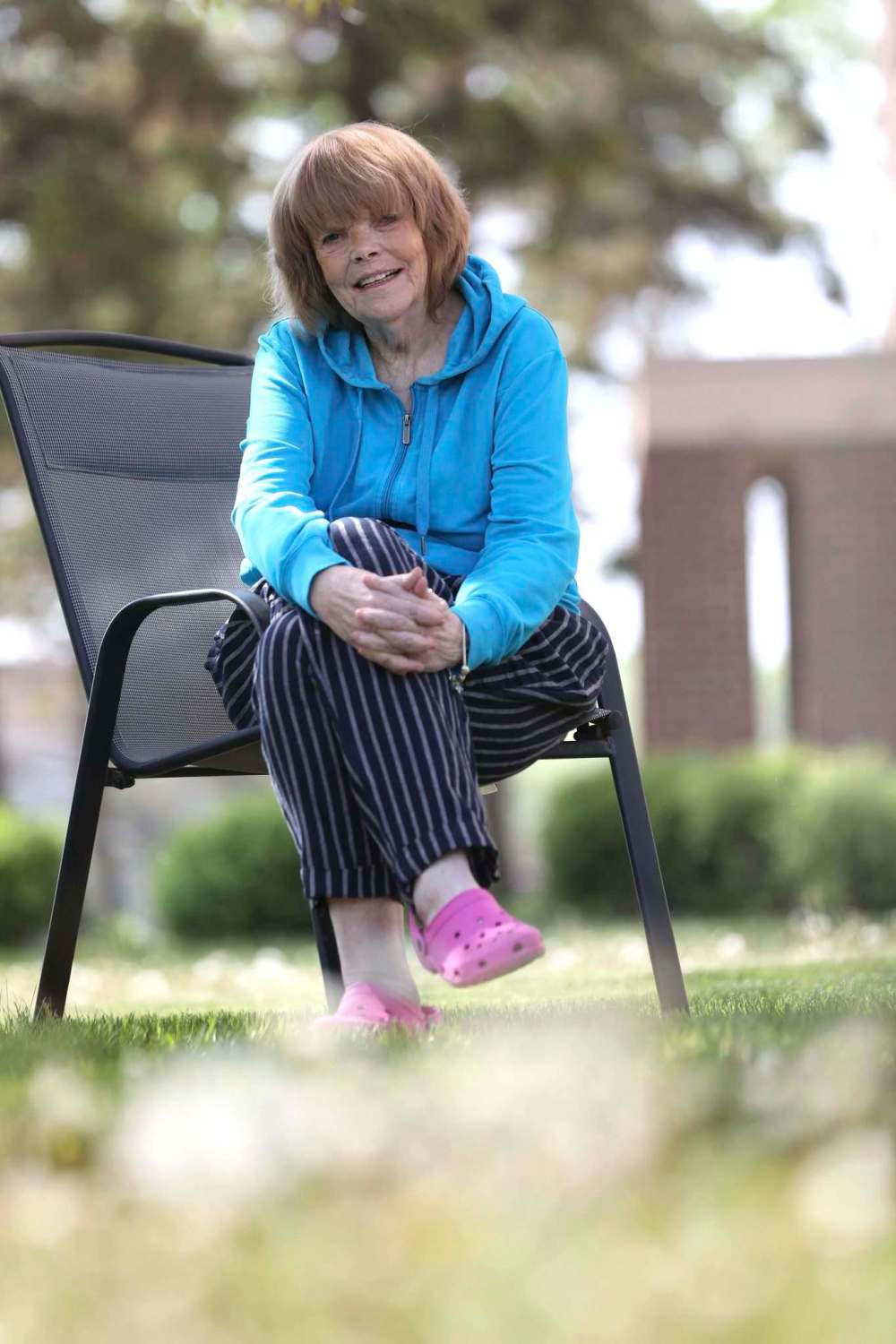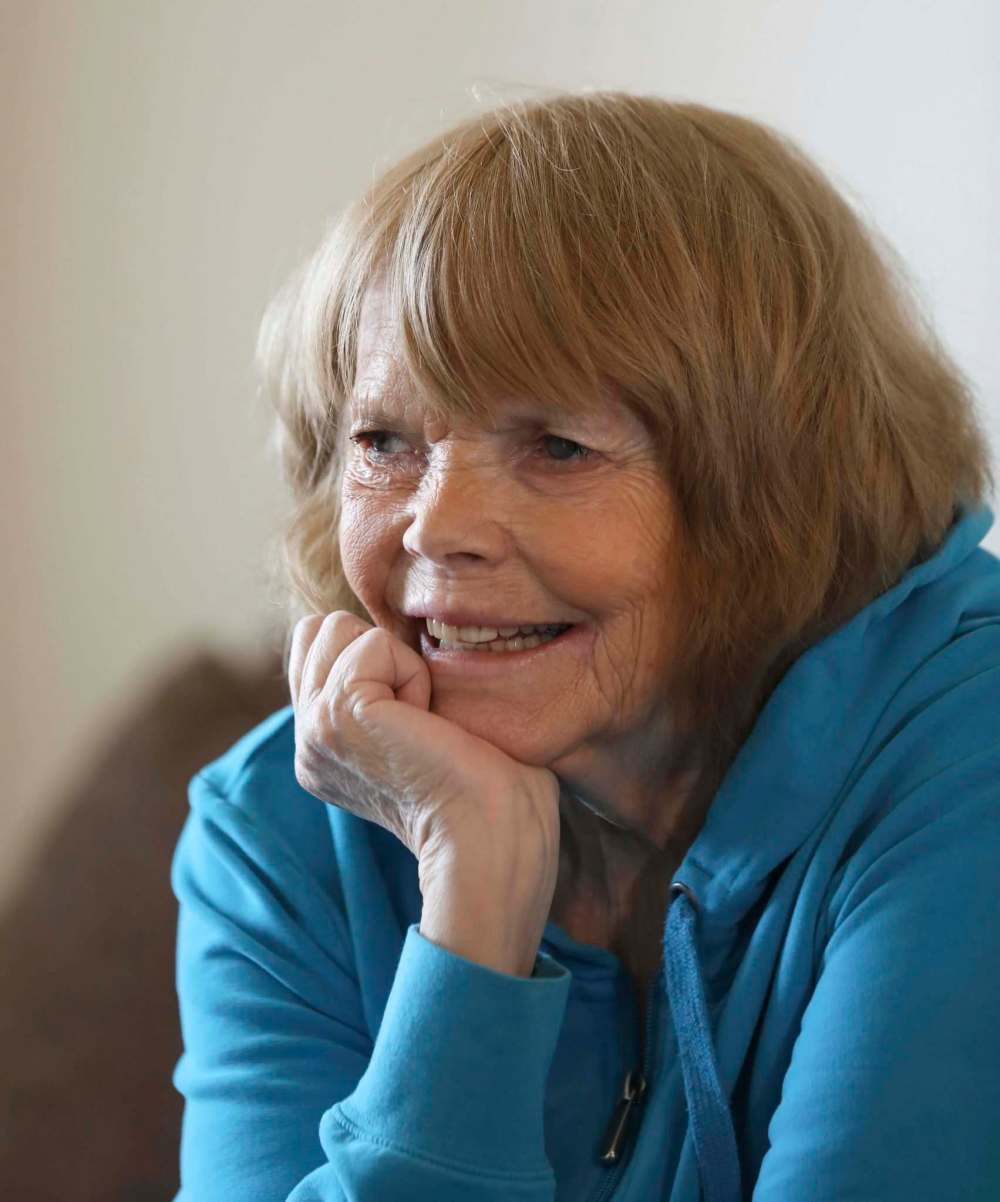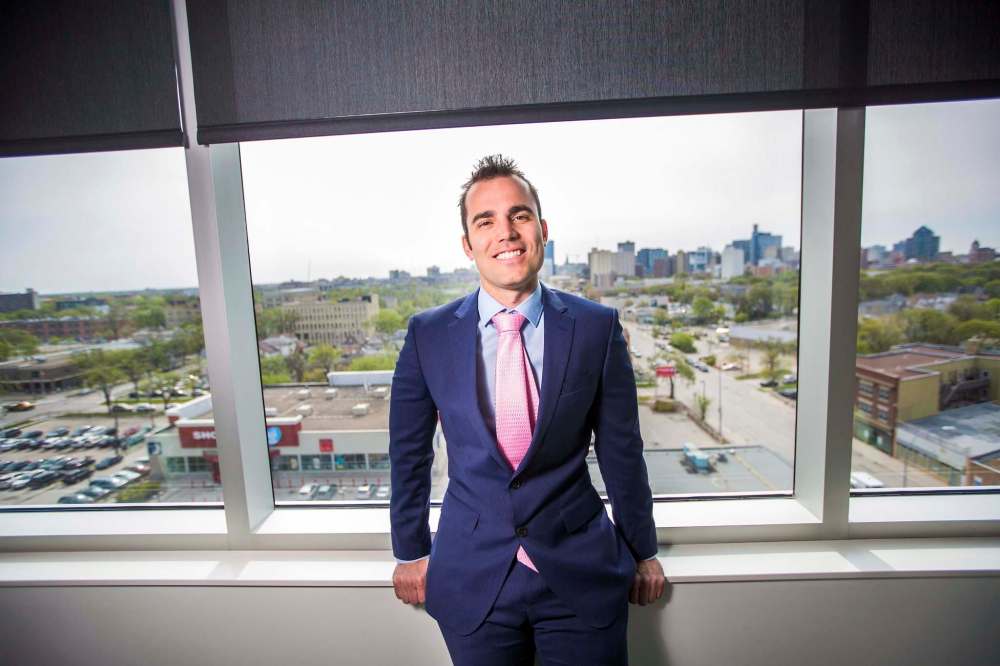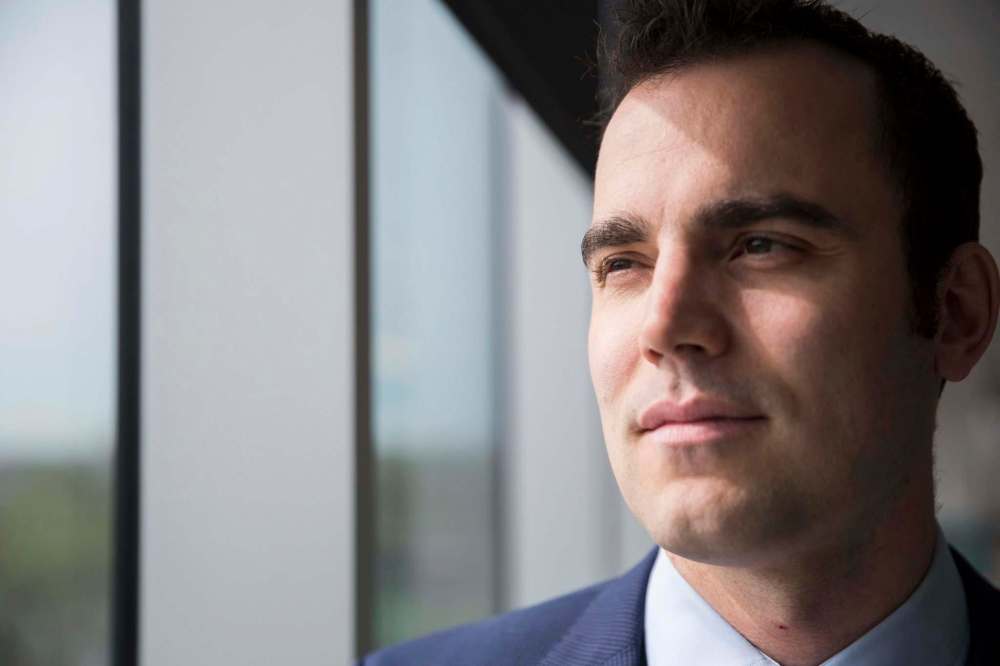Not your usual wonder drug Grateful patient gets her life back after receiving fecal transplant
Read this article for free:
or
Already have an account? Log in here »
To continue reading, please subscribe:
Monthly Digital Subscription
$0 for the first 4 weeks*
- Enjoy unlimited reading on winnipegfreepress.com
- Read the E-Edition, our digital replica newspaper
- Access News Break, our award-winning app
- Play interactive puzzles
*No charge for 4 weeks then price increases to the regular rate of $19.00 plus GST every four weeks. Offer available to new and qualified returning subscribers only. Cancel any time.
Monthly Digital Subscription
$4.75/week*
- Enjoy unlimited reading on winnipegfreepress.com
- Read the E-Edition, our digital replica newspaper
- Access News Break, our award-winning app
- Play interactive puzzles
*Billed as $19 plus GST every four weeks. Cancel any time.
To continue reading, please subscribe:
Add Free Press access to your Brandon Sun subscription for only an additional
$1 for the first 4 weeks*
*Your next subscription payment will increase by $1.00 and you will be charged $16.99 plus GST for four weeks. After four weeks, your payment will increase to $23.99 plus GST every four weeks.
Read unlimited articles for free today:
or
Already have an account? Log in here »
Hey there, time traveller!
This article was published 03/06/2019 (2381 days ago), so information in it may no longer be current.
Sandi Smith is sitting under a tree in the shade in front of her Kenaston area apartment block, enjoying the first really hot day of the year.
Two months ago, the 72-year-old would have been afraid to leave her apartment — not that she would have felt like it, considering the almost constant headache, backache and stomach pain she was experiencing.
But the diarrhea was what kept her inside. Explosive and totally without warning, it’s the hallmark of the colitis that affects people infected with the Clostridium difficile bacteria, familiarly known as C. diff.

And Smith was intimately familiar with it. She suffered for a year, during which time she was hospitalized five times. She fell into a pattern: hospitalization for three weeks, where she was treated with the antibiotic vancomycin, then a return home with two more weeks’ worth of pills.
“I’d finish the medication and then ‘Boom!’ “ she says, making a graphic hand gesture indicating a return of her more unpleasant symptoms.
C. difficile preys on patients whose gut microbiome has been disrupted by antibiotic use. Antibiotics kill infection, but they may also kill off beneficial bacteria in the colon, allowing C. difficile to take over and run rampant, causing what’s called pseudomembranous colitis — a severe inflammation of the colon that causes diarrhea, cramps, nausea and dehydration. If untreated, it can result in death.“I stayed home all the time, unless I was in the hospital, and there you’re totally isolated, too– the nurses have to gown up every time you want the littlest thing, so you don’t like to ask. Now I can go for a walk. And last weekend, I finally got to meet my new granddaughter.” — Sandi Smith

“I’ll give you the worst scenario,” Smith says, leaning forward at the dining-room table of her cheerful apartment. “I was moving and there was the caretaker, my friend and three movers in the room. I stood up from the couch and s— just went everywhere. There is absolutely no warning.
“The only warning you get is being really dehydrated and confused. My kids thought I had dementia; they were scared.”
Her eyes light up when she talks about the man she credits with saving her life, Dr. Chris Schneider. When she saw he had been interviewed by the Free Press about the province’s first fecal-transplant treatment for C. difficile, she wanted people to know just how meaningful that medical advance was.
“I had said to my daughter, ‘If this is life, I don’t want to live it anymore,’” she recalls. “It was horrifying. Imagine being so dehydrated that you can hear and think but you can’t move a limb.”
Smith was Schneider’s first patient for the procedure, which sees feces from a donor introduced via colonoscopy into the patient’s bowel. The beneficial bacteria in the donor stool works to restore balance in the patient’s gut.
For Smith, the results were nothing short of miraculous. Her symptoms vanished within hours and now, two months later, she remains healthy.
“It’s something so hush-hush, people don’t want to talk about it,” she says of the undeniably unpleasant-sounding procedure. “But it turns your life around completely, and it’s really just a colonoscopy, which is something lots of people have had — except you have to drink about two gallons of GoLytely (an electrolyte solution that cleans out the colon) because there can’t be any poo in there at all.”

Prior to Schneider’s work in creating a protocol for fecal transplants — in collaboration with Dr. Ayush Kumar, a microbiologist at the University of Manitoba — patients would have had to travel to Alberta or Ontario for treatment (Quebec and Newfoundland also offer the procedure). Now they can be referred for fecal transplant to the Manitoba Clinic.
Donor eligibility requirements
Dr. Chris Schneider foresees a time when there will be a Manitoba fecal bank, much like a blood bank, in which screened, safe samples from donors can be housed (the bacteria can be preserved, if frozen, for up to three months) for use in fecal transplants.
Being a donor isn’t a simple as dropping the kids off at the pool — the screening process is designed to protect the patient from infection.
Dr. Chris Schneider foresees a time when there will be a Manitoba fecal bank, much like a blood bank, in which screened, safe samples from donors can be housed (the bacteria can be preserved, if frozen, for up to three months) for use in fecal transplants.
Being a donor isn’t a simple as dropping the kids off at the pool — the screening process is designed to protect the patient from infection.
(The requirement of a lower body mass index, or BMI, is because studies have shown transplanting feces from an obese donor will cause the recipient to gain weight.)
— Must be 18 or older
— Good general health
— BMI of less than 30
— Negative for C. difficile
— Negative for HIV, salmonella, shigella, hepatitis and a list of other infections
— Negative tests for stool ova and parasites
— No episodes of diarrhea in the last three months
— No risk factors for sexually transmitted infections
— No travel to tropical regions in last three months
Some Canadian regions, including Alberta, have experimented with delivering the treatment via oral capsule, but Schneider explains the method is not as effective — in the 80 per cent range, as opposed to about 93 per cent with delivery via colonscopy — and, depending on what makes you more squeamish, it’s less appealing.
“It’s a massive dose because you need the same amount of fecal load,” he explains. “So imagine swallowing 50 capsules of poop. You don’t feel very good.”
However, it’s a promising form of treatment because it’s highly portable, can be sent to remote communities and takes less time to perform than a colonscopy.
Schneider says he faced a great deal of resistance to introducing the treatment and even now, there is no fee code for fecal transplant, meaning doctors are unable to bill for performing the procedure.
“I (was told) the province is in a contraction phase for health-care spending so to ask for a new fee code would be a joke right now,” he says. However, he and Dr. Ibrahim Abdelgadir, another Manitoba Clinic gastroenterologist who will be doing the procedure after Schneider moves to Australia in September, are committed to providing the service.
“Doctors, like anybody else, want to get paid for what they do, but I think there’s a calling in medicine to do the right thing,” he says. “I think it’s fine to volunteer in your own country in your own speciality, you don’t have to travel to another country to do things that are good for people that you don’t get paid for.”
He adds that the governmental austerity is shortsighted, because the long-term costs of treating patients with C. difficile far outweigh the one-time cost of a fecal transplant — not merely the multiple hospital stays, but the medication costs as well.

“The vancomycin costs over $3,000 a week,” Schneider says. “So my patient was on it for a whole year: do the math — that’s more than $150,000 in Pharmacare, another government envelope, that taxpayers spent on this person. We could have done it for $275 after just two treatments of vancomycin.”
The government also foots the bill — in the thousands of dollars — when patients must travel to Alberta for treatment.
Despite her year-long ordeal, Smith is feeling nothing but gratitude right now. “I’m just so thankful to Chris (Schneider), and to my amazing donor, plus my GP really helped me through the year — he was very supportive — and my psychiatrist,” she says, adding that the mental burden of C. difficile colitis is almost as bad as the physical one. “The embarrassment, the degradation, the feeling dirty, and the isolation. No one wants to visit you. My one son had little kids, so I couldn’t see them; you can’t risk it.
“I stayed home all the time, unless I was in the hospital, and there you’re totally isolated, too — the nurses have to gown up every time you want the littlest thing, so you don’t like to ask.
“Now I can go for a walk. And last weekend, I finally got to meet my new granddaughter.”
jill.wilson@freepress.mb.ca
Twitter: @dedaumier

Jill Wilson writes about culture and the culinary arts for the Arts & Life section.
Our newsroom depends on a growing audience of readers to power our journalism. If you are not a paid reader, please consider becoming a subscriber.
Our newsroom depends on its audience of readers to power our journalism. Thank you for your support.
History
Updated on Tuesday, June 4, 2019 12:46 PM CDT: Photo fixed.










